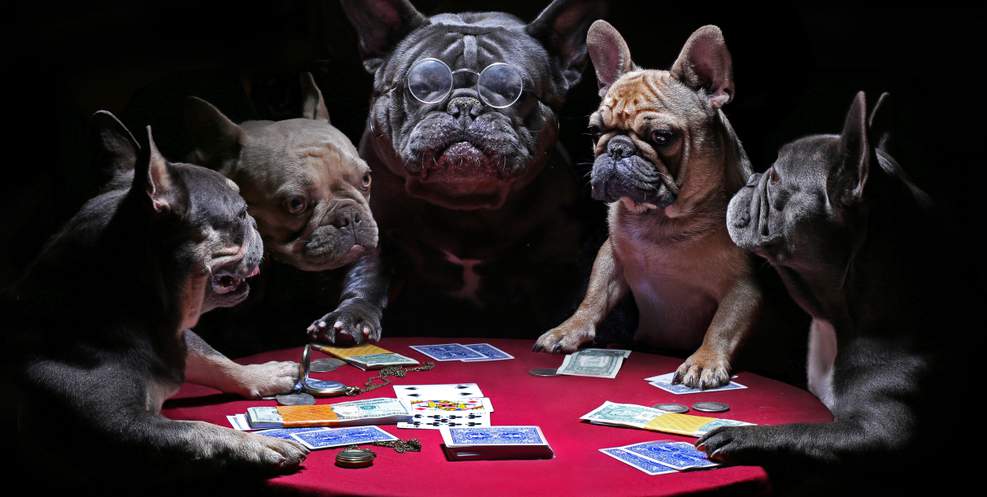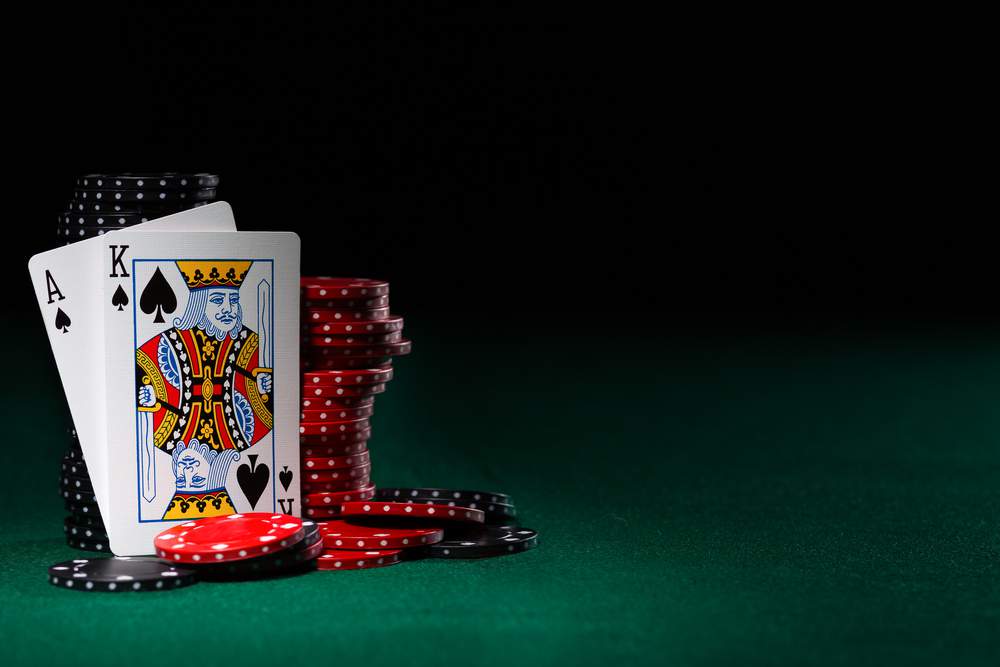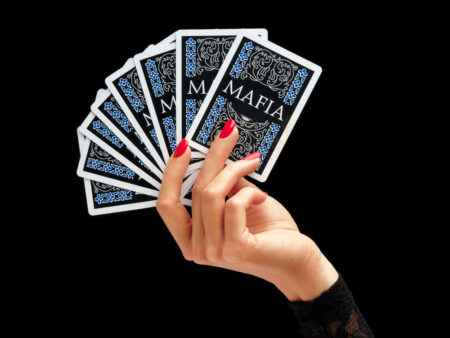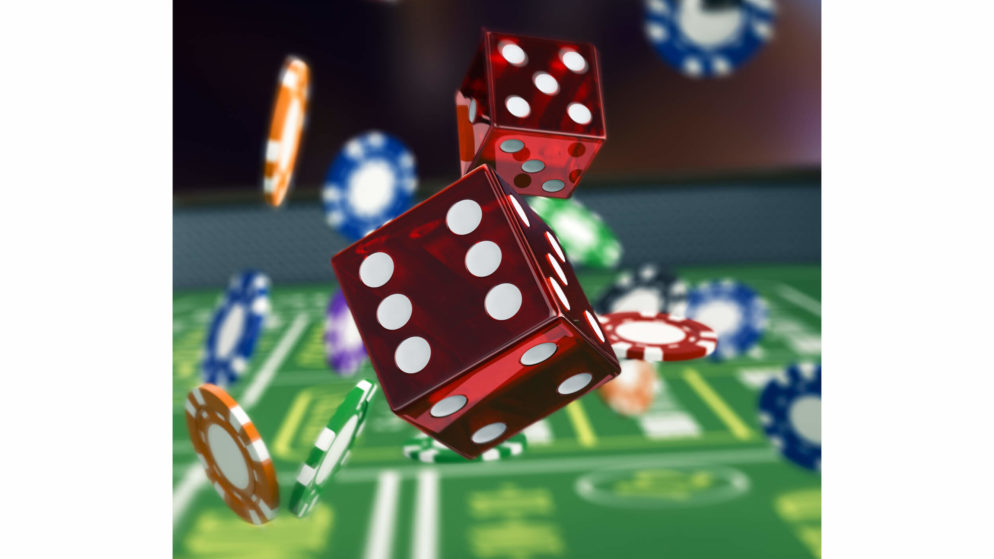
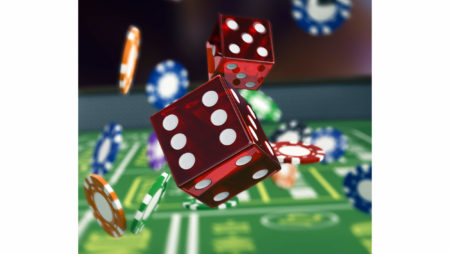
Craps rules refer to the different rules, customs, and strategies applying to the popular casino game of craps.
What is Craps?
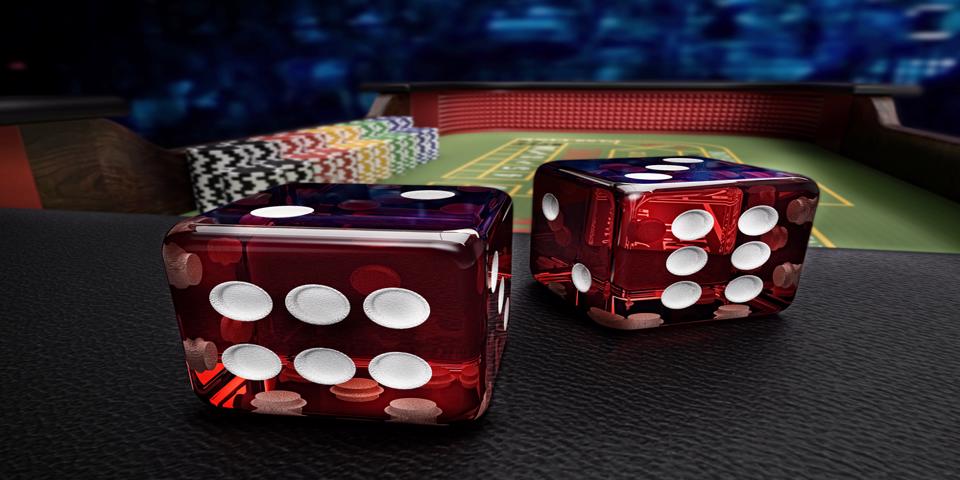
Follow the shouting, hooting, and hollering in any casino and you won’t find yourself at a poker or blackjack table. That’s where players go to practice their imitation of a house cat, betting on cards with blank expressions and hardly a peep. Instead, you will probably find yourself at the craps table.
The craps table is a volcano of excitement. Players shout at each other, at the dealers, and at Lady Luck, exploding in cheers of excitement over a favorable roll, dissolving into cries of despair over a losing one.
Craps is a casino dice game dating back to early-1800s New Orleans. However, its origins in Europe may run even deeper.
At its heart, craps is a very simple game. A player (the “shooter”) rolls two dice (“shoots craps”) and the shooter and other players bet on the outcome.
Around these basic principles, a whole universe of rules, customs, specialty terms, and forms of “side action” have evolved.
Certain dice rolls are always winners for the shooter, while other rolls are always losers. Side wagers can be staked on whether or not the shooter wins.
A Brief History of Craps
Thrill-seeking Louisiana heir Bernard Xavier Philippe de Marigny de Mandeville returned from a trip abroad in 1807 to his colonial home, where his family had become wealthy in plantation agriculture. While overseas, he had developed a taste for a dice game called Hazard, the roots of which may extend back to the Crusades.
Hazard players select a winning dice outcome of any number between 5 and 9 before betting. De Marigny discovered that 7 was the most likely winning outcome and taught a version to his peers where only 7 was the winning roll.
His peers rewarded his innovation by roundly rejecting the game, considering it boorish. Indignant, De Marigny sought out other “boors” to share his dice-throwing passion.
The game caught on among New Orleans’ lower classes. They called it “shooting crabs,” which eventually morphed into “shooting craps.” The name later acquired a scatological twist when “using the crapper” entered the lexicon thanks to the famous toilet manufacturer Thomas Crapper. Subsequently, losing dice rolls of 2 or 3 came to be known as “craps.”
Today, craps is played informally among friends who bet and play against each other. Especially popular in its origin city of New Orleans, “street craps” is popular because all you need to play is a pair of dice.
It’s also played at low-end, mid-range, and high-end casinos across the world on purpose-built tables, with players betting against the house. Online casinos also offer craps.
What Are the Basic Rules of Craps?

The Craps Table
Craps need not be played on an official craps table. However, casino craps use a specialized table to keep the wagers organized.
The craps table is divided into side sections, managed by dealers, and a center section, manned by the stickman. The side sections contain areas for each type of bet, including Pass Line, Don’t Pass Line, Come, Don’t Come, Field, and Big-6/Big-8 wagers. Players can lay chips down in the appropriate section to indicate the nature of their bet.
The table is deep-set and surrounded by high bumpers lined with pyramidal rubber, which the dice bounce off when thrown.
The Players
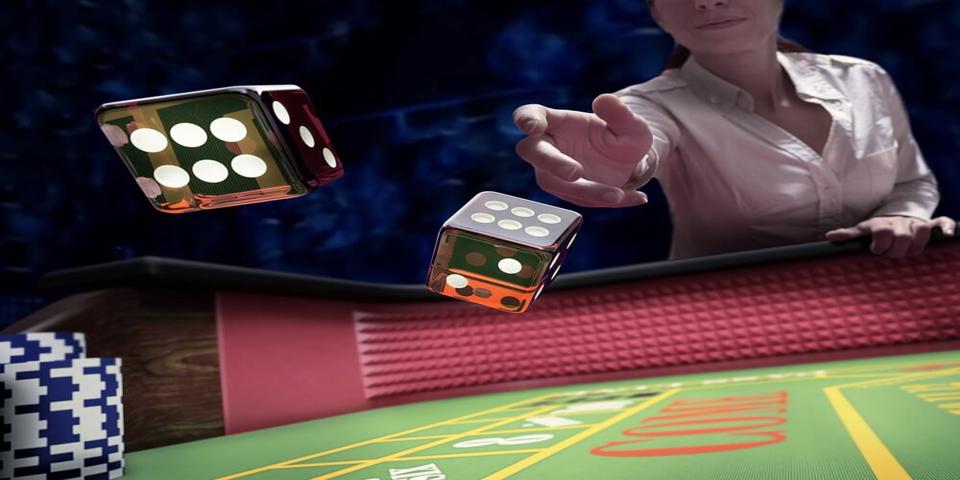
Players encircle the table. Shooting turns to pass clockwise (to the left) of each player.
In addition to the shooters, the house fields a team of four:
Dealers
At least two dealers–who are sometimes called the “dealer on base”–man the table on each side, keeping track of bets, paying out winnings, placing pucks on the “Point” marker when the Point has been established and placing certain bets for you (e.g. Come or Don’t Come bets).
Stickman
Also called “stickwoman,” “stickperson,” or “dealer on the stick,” the stickman is the keeper of the dice used in the game. (S)he uses a long stick–sometimes called a “whip” or “mop”–to handle them.
Boxman
At least one “boxman” (or “boxwoman” or “boxperson”) monitors the whole game, settling disputes and visually confirming fair play on the part of both players and dealers.
The Dice

Casinos maintain tight control of their craps dice, often right from the factory to the table, as they are susceptible to tampering by cheaters.
Once in play, casinos maintain equally tight control, constantly inspecting the dice for damage. As in all casino games, craps yields a predictable edge to the house when you factor in all shoots. Damaged dice produce unpredictable outcomes, and unlike the players, casinos are not betting their financial fortunes on chance.
The stickman inspects the dice after each use, the dice usually being retired after eight hours of gameplay.
Rules for Dice Handling

Certain rules also govern the way dice are handled at a casino craps table. The stickman presents a selection of dice–usually five–from which the player selects two. The stickman then retrieves the unselected dice with the stick; these dice are then not used in gameplay.
Shooters must shake and roll the dice with one hand only, not two hands. For the shoot to be valid, the dice must also hit and bounce off the bumper walls surrounding the inset table.
If a shooter accidentally shoots the dice off the table, the stickman or other casino official inspects them before they can be used again in gameplay.
Stages of the Game
A craps game is played in two main stages, both of which involve the throwing of two dice. The stages are:
The Come Out
This round is to establish a “point” value for the next round. Moving clockwise around the table in turn, players shoot the dice as many times as necessary to establish a “point” value. If, on a Come Out shoot, the dice show a value of 4, 5, 6, 8, 9, or 10, that number becomes the shooter’s “point” value for the next round.
If the dice show 7 or 11 on the Come Out shoot, the player automatically wins his/her Pass Line bets but must make another Come Out shoot on the next round to establish a Point value for that round. A winning shoot of 7 or 11 is also called a “Natural.”
If the player shoots 2, 3, or 12, this value is called “crapping out” and the shooter automatically loses his/her Pass Line bets.
Point Throws
In this round, the roll of a natural 7 ends the round. The player must roll his/her point value, i.e. repeat the final result of the last round, to win any Pass Line bets on that shooter. If the shooter rolls a 7 before the point value is hit, the player loses; this is how a player “sevens out.”
Types of Bets

While craps is built on the simple shoot of two dice with only a few possible winning outcomes, many different kinds of wagers can be placed on those outcomes. The most popular craps bets include:
Pass Line
A “Pass Line” bet is basically a bet on a particular shooter to win the shoot. They could do this by rolling a 7 or 11 on the Come Out shoot, or by hitting their point value on the Point shoot before “sevening out.” This is also called “betting right.”
A Pass Line win doubles the money of the bettor. A shooter must make a table-minimum Pass Line bet on him/herself before shooting. Other players can make Pass Line bets on other players’ shoots.
Don’t Pass Line
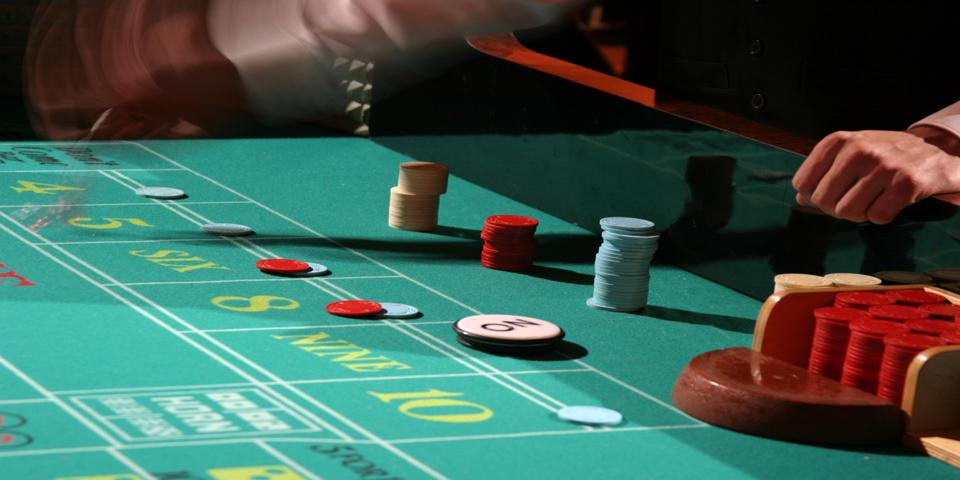
“Don’t Pass Line” wagers bet against the shooter to win the shoot. They are also called “betting wrong.”
If the targeted shooter rolls a 2, 3, or 12 in the Come Out round, or fails to hit his/her point roll before “sevening out” in the point round, then the “Don’t Pass Line” bettor doubles his/her money.
Come
A “Come” bet is similar to a Pass Line bet and one of the more basic craps bets you can place. The player bets on “Pass Line” outcomes after the initial Come Out shoot has been made and the point value established.
If the shooter rolls a 7 or 11, the Come bettor wins. If the player rolls something other than a 2, 3, 7, 11, or 12, that roll may become the “point” value for the Come bet. Later shoots that hit the point value will double the Come bettor’s money, even if the shooter does not win a Pass Line bet on that shoot.
Don’t Come
Like Don’t Pass Line bets, “Don’t Come” bets are the opposite of Come bets. They bet that the shooter will lose the standards of a Pass Line win on a shoot taking place after the Come Out and the establishment of a point value.
Odds (“Buy/Lay”)
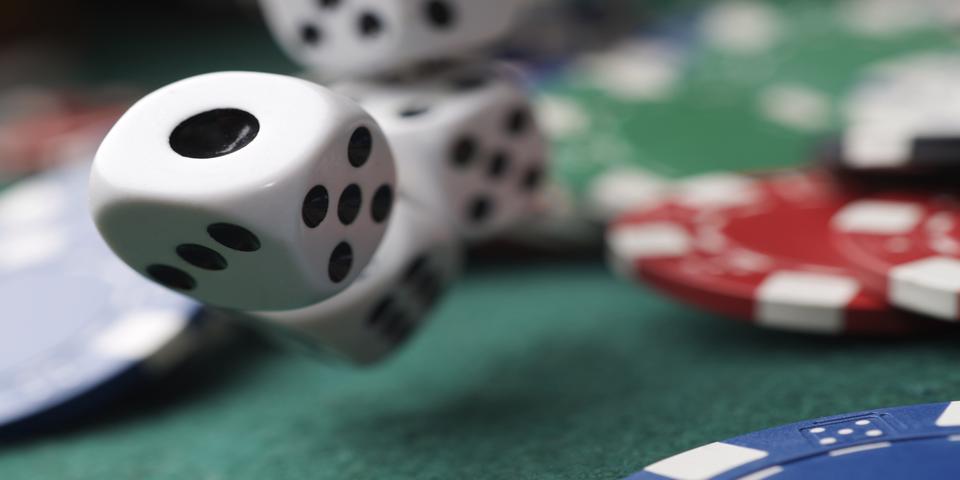
An “Odds” bet is a side bet to the Pass Line or Come bet. A player can “take odds” or “buy odds” when they’ve made a Pass Line or Come bet; they can also “lay odds” when they’ve made a Don’t Pass Line or Don’t Come bet.
Odds bets are typically limited to 2x-3x of the original bet. The payout depends on the likelihood of a particular roll—for example, 2/1 for points 4 and 10; 3/2 for points 2 and 9; 6/5 for points 6 and 8.
Place
A “Place” bet is similar to an Odds bet but does not offer “true odds” the way an Odds bet does. As such, they usually payout lower. A Place bet can be made whether a Pass Line bet has been made or not.
Field
A “Field” bet is a bet on the outcome of one particular roll of the dice. Less likely outcomes win, while the four most likely outcomes—5, 6, 7, and 8—lose.
A Field bet on a roll pays out 1/1 for rolls 3, 4, 9, 10, and 11. It pays out 2/1 for a roll of 2, and 3/1 for a roll of 12.
Bix Six or Big Eight
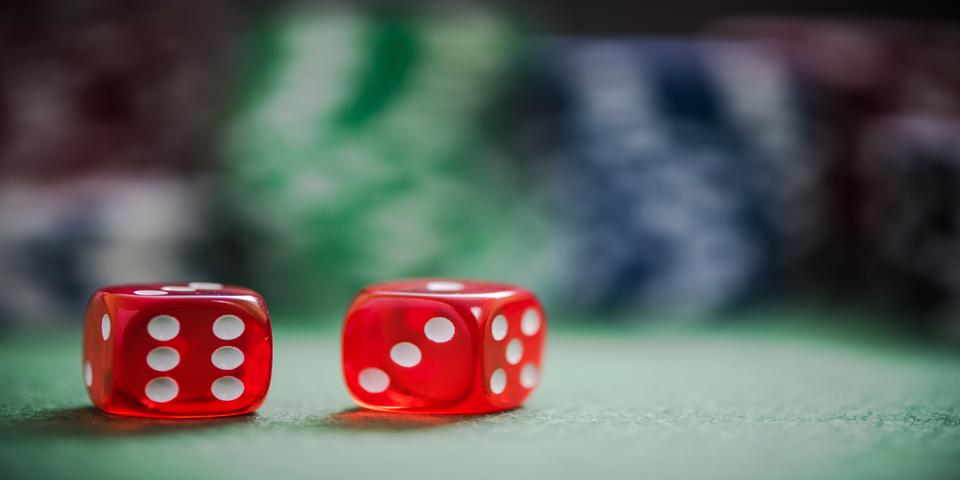
At any time, a player can place a bet that a 6 or an 8 will be the outcome of the roll. A “Big 6” or “Big 8” bet doubles the bettor’s money if the dice show the winning number to be 6 or 8.
Proposition
A player can make a “Proposition” bet at any time, receiving a payout based on the likelihood of the outcome they bet on:
- “Any Craps.” If the shoot lands on 2, 3, or 12, the bettor reaps 12/1.
- “Any Seven.” If the shoot lands on 7, the bettor reaps 5/1.
- “Eleven.” If the shoot lands on 11, the bettor reaps 16/1.
- “Ace Deuce.” If the shoot lands on 3, the bettor reaps 16/1.
- “Horn Bet.” If the shoot lands on 2, 3, 11, or 12, the bettor wins a return determined by the number shot.
Hop
Hop bets can be placed at any time. A player can wager on any dice outcome they like, down to the number on each die. Not all casinos or tables accept hop bets. Ask in advance, or check for signs indicating that hop bets are forbidden at the table you are playing at.
Hardways
Many combinations of two dice can result in an “8” shoot—2 and 6, 1 and 7, etc. These are called the “easy way.” A “Hard 8”–the hard way of 8–is from a pair of dice, or 4 and 4. Players can bet on a shoot to land on a “Hard 4,” “Hard 6,” “Hard 8,” or “Hard 10” to bet on a matched pair of dice.
(“Hard 2” and “Hard 12” isn’t a thing, since a pair of 1’s and a pair of 6’s is the only way to produce this outcome.)
This long-odds proposition bet is also sometimes called the “sucker’s bet.”
How to Win at Craps
Anyone can get lucky with a big-winning long-odds bet on a single die roll like Hardways or Big 6/Big 8, but it’s unlikely; these risky bets carry house edges over 10%.
Some gamblers swear that with practice, they can “control” the dice in the hand where they shake them and increase their ability to predict the outcome of the shoot. This is unproven and would take so much practice that the potential payout might not be worth your time. It also doesn’t apply to online craps.
Winning gamblers do not try to predict outcomes—they bet in such a way that maximizes the mathematical likelihood of them coming out ahead, while everyone else throws away their money and solidifies the house edge.
By picking a strategic system and sticking to it, you could lose a few shoots and still come out ahead. Just remember—the longer you play, the more the house edge reveals itself.
Some basic rules of thumb:
- Predicate your next bet based on your last bet, not on a “hunch.” Bet lower if you’re losing, higher if you’re winning.
- If you want to enjoy a long session at the table without going broke (maybe even coming out ahead), stick to low-house-edge bets like Pass Line, Don’t Pass Line, Come, and Don’t Come.
- If you want a short session with a chance of a big payoff, indulge in some long-odds bets.
- Never bet more money than you are willing to lose.
Professional or experienced gamblers stack wagers to increase the likelihood of coming out ahead. Here’s an example of a craps wager stack:
Wager Stack 1:
- Pass Line Bet
- Single or Double Odds on the Pass Line Bet
- Come Bet
- Single or Double Odds on the Come Bet
- When you win on one of the Come bets, place another immediately.
The odds on various wagers are as follows:
Pass Line Bet
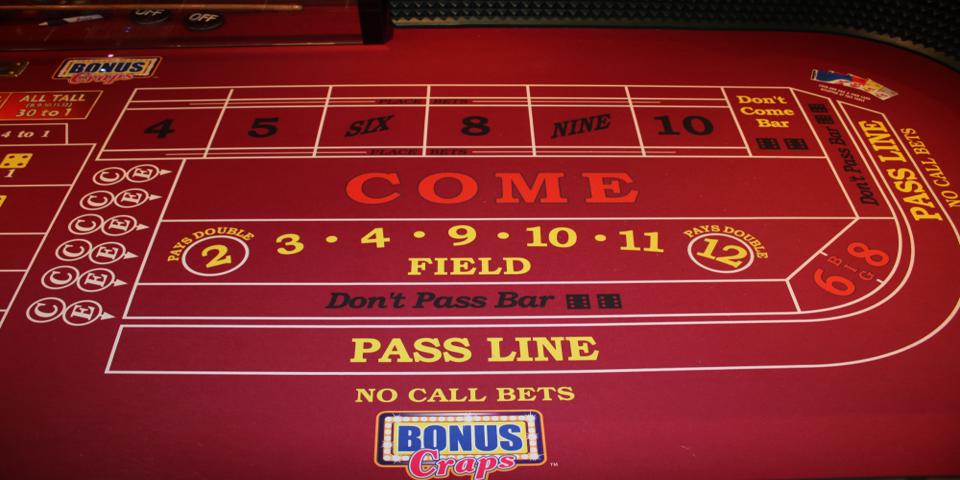
Payout: 1/1
Odds: 251/244
House Edge: 1.41%
Don’t Pass Line Bet
Payout: 1/1
Odds: 976/949
House Edge: 1.36%
Come Bet
Payout: 1/1
Odds: 251/244
House Edge: 1.41%
Don’t Come Bet
Payout: 1/1
Odds: 976/949
House Edge: 1.36%
Buying Odds Bet
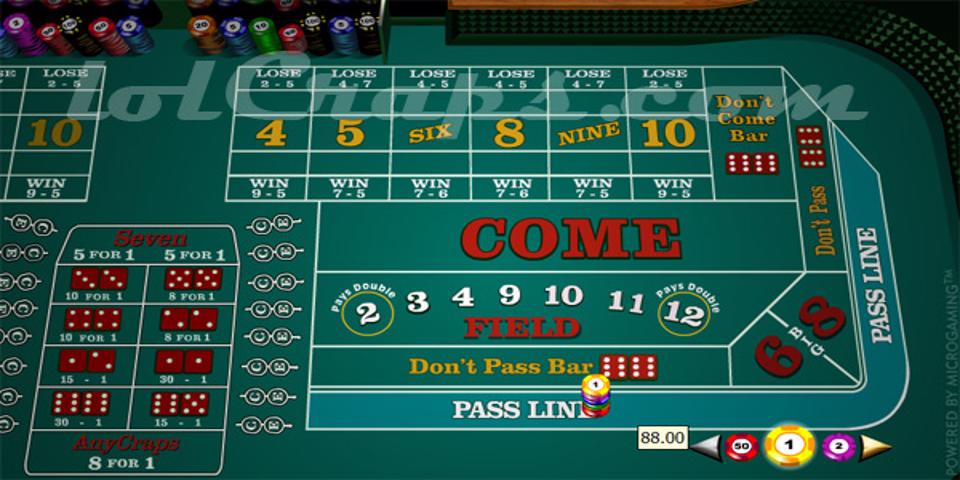
Payout: 2/1 on 4, 10; 3/2 on 5, 9; 6/5 on 6, 8
Odds: Same as Payout
House Edge: 0%
Laying Odds bet
Payout: 1/2 against 4, 10; 2/3 against 5, 9; 5/6 against 6, 8
Odds: Same as Payout
House Edge: 0%
Field Bet
Payout: 1/1, except 2 (2/1) and 12 (3/1)
Odds: 5/4
House Edge: 2.78%
Bix Six or Big Eight Bet
Payout: 1/1
Odds: 6/5
House Edge: 9.09%
Proposition Bet
Payout: Varies (7/1 or more)
Odds: Varies (8/1 or more)
House Edge: Over 10%
Hop Bet
Payout: 15/1
Odds: 17/1
House Edge: 11.11%
Place Bet
Payout: 6/5 on 6, 8; 3/2 on 5, 9; 2/1 on 4, 10
Odds: 7/6 on 6, 8; 7/5 on 5, 9; 9/5 on 4, 10
House Edge: 1.52% on 6, 8; 4% on 5, 9; 6.67% on 4, 10
Hardways Bet
Payout: 30/1 on 2, 12; 7/1 on 4, 10; 9/1 on 6, 8
Odds: 35/1 on 2, 12; 8/1 on 4, 10; 10/1 on 6, 8
House Edge: 13.89% on 2, 12; 11.11% on 4, 10; 9.09% on 6, 8
Common Questions and Answers about Craps
Question: Can you play craps online for money?
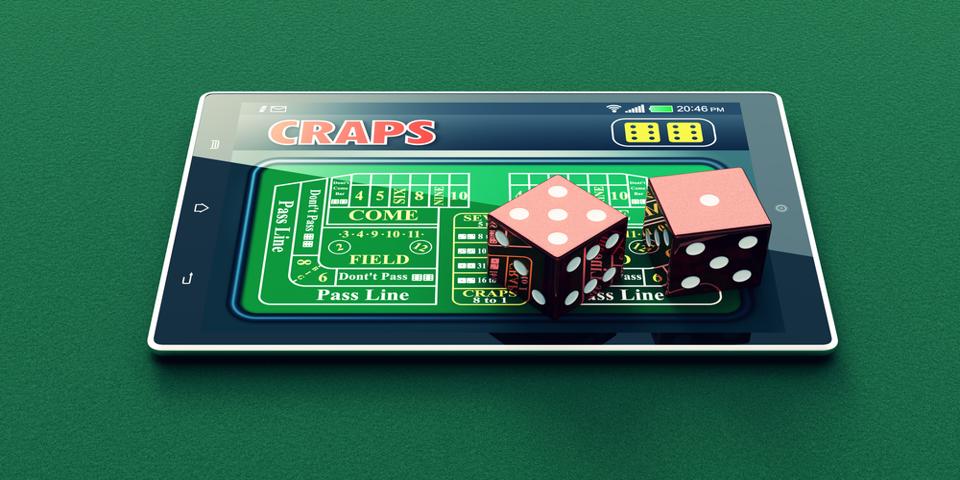
Yes, you can … but laws vary. A few states have expressly legalized online gambling and license online casinos. Other states have no specific laws prohibiting it, or they state that online gambling is illegal but set out no penalties for it (making it effectively legal).
Other states prescribe penalties of varying harshness for the crime of online gambling, though it’s unclear how strictly they’re enforced.
Regardless, online casinos will accept deposits by ACH, credit card, mobile wallet, wire transfer, or cash deposit at an affiliated casino, and do accept online wagers on digital craps games.
It is worth noting that state-licensed casinos must comply with oversight rules monitoring the fairness of the games, the protection of sensitive user data such as social security and credit card numbers, and the honoring of withdrawal requests.
The safest and fairest online craps games are probably those offered by the states that license online casinos, including:
- Delaware
- Michigan
- New Jersey
- Pennsylvania.
States have different laws about whether you have to be physically located within the state (verified by GPS) or a resident of the state in order to gamble legally. You must also be of legal age to gamble in whatever locality you choose. Legal gambling ages vary by state and country.
Online craps games look like video-game versions of a craps table on a mobile or desktop browser. Animated dice may be thrown, but remember that the shoot result is determined by random-number-generating software, not the role of actual dice. In this digital environment, it is even easier for a casino to build in a predictable house edge.
However, state-monitored casinos must adhere to their house edge and not unfairly slant the game or make it unwinnable. This means that within the parameters of the house edge, it is perfectly possible for a player to get a lucky online shoot and win big money.
Question: What is the best bet in craps?
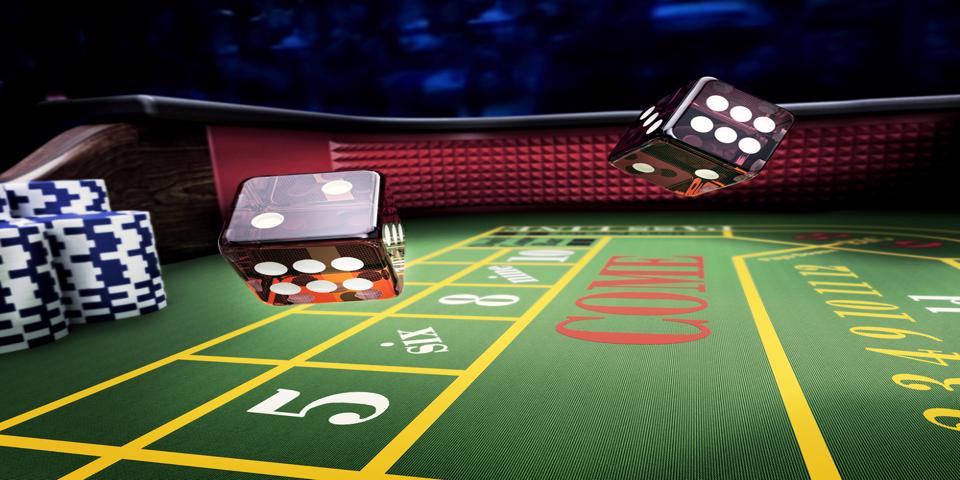
Everyone has to make a Pass Line bet to shoot craps at a casino, and this is actually a pretty good bet, with a house edge of only about 1.41%.
However, a better bet is a Don’t Pass Line bet. With this bet, you are betting with the house, that another player is going to lose money. Don’t Pass Line bets still carry a house edge, but it’s down to 1.31%. Remember, though, to sit at the table and bet, you still have to make a Pass Line bet on your own shoots. You can’t just standoff in the corner and make Don’t Pass Line bets on everyone else!
A Pass Line bet with odds has the lowest house edge in the game.
Hardways bets have the best payouts because they have the longest odds. Place bets are some of the most-likely-to-win bets, but their payout is small.
Again, craps players with longevity devise strategies that mathematically reduce their chances of losing money while increasing their chances of winning money.
An example wager stack was presented above. Here’s an example of another:
Wager Stack #2:
- Once the point is determined, place two equal proposition wagers on 6 and 8 (the most likely outcomes).
- When one of the bets hits, come down one unit on each bet, extracting your winnings while leaving short-odds wagers on the table.
Question: How do craps odds work?
Calculating the odds of any particular roll of the dice coming up is fairly straightforward math. It behooves you to know how to do this before you play. The casino has definitely done the math!
The odds of any die roll coming up is calculated by ascertaining the number of possible ways the outcome could be generated, divided by 36 (6 sides on die 1 x 6 sides on die 2).
There are six ways two dice could land on 7. Six divided by 36 equals 1/6. Therefore, the odds of rolling a 7 at any given time would be 1/6.
Conversely, there’s only one way to roll a Hard 10, so the odds of that outcome of a shoot would be 1/36.
The casino builds its “house edge” into the difference between the payout and the actual odds. This is why 1/36 odds pay out 35-to-one, whereas 1/6 odds payout 5-to-one.
Question: How do you play video craps?
Some casinos offer video craps machines. These games are played in a similar fashion to online and mobile web craps games. You place your bet, with options including Pass Line, Don’t Pass Line, Come, Don’t Come, Odds, and other popular craps bets.
You then press a button and random-number-generator software produces the shoot result, often with a pleasing “dice roll” animation.
Video craps machines in legal casinos can be used to play for money using chips, cash cages, or payment card deposits.
Question: How do you play the crap line in craps?
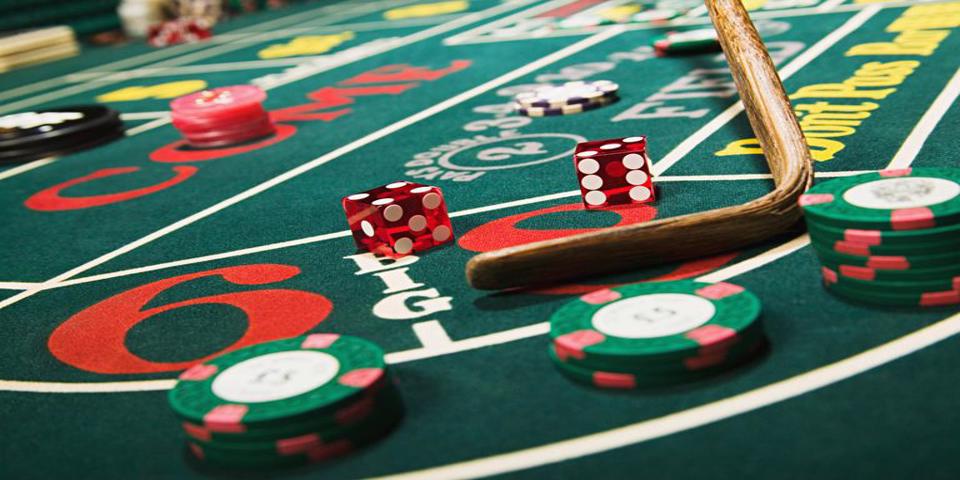
Before the Come Out round, place your desired bet on the Pass Line or Don’t Pass Line section of the craps table.
Remember, when you play the Pass Line, you are betting on the shooter to win the shoot. A Don’t Pass Line bet is a wager that the shooter will lose the shoot.
Question: How do you make an Odds bet in craps?
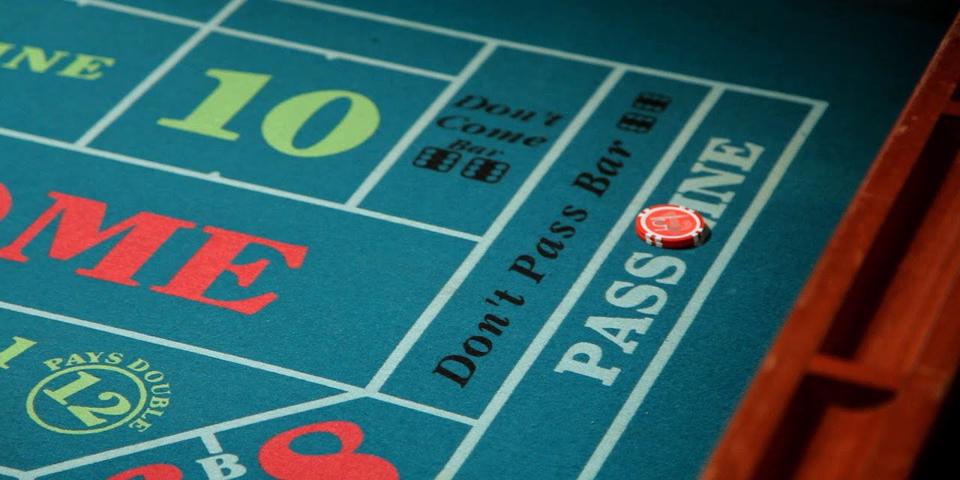
Once the point is thrown, Odds bets can be placed on any Line bet. Casinos usually allow you to bet:
- 3x the Line bet on point 4 or 10
- 4x the Line bet on point 5 or 9
- 5x the Line bet on point 6 or 8.
Some casinos allow Odds betting of 5x, 10x, 20x, or even 100x of the Line bet on any point value.
Question: Can casinos rig craps?
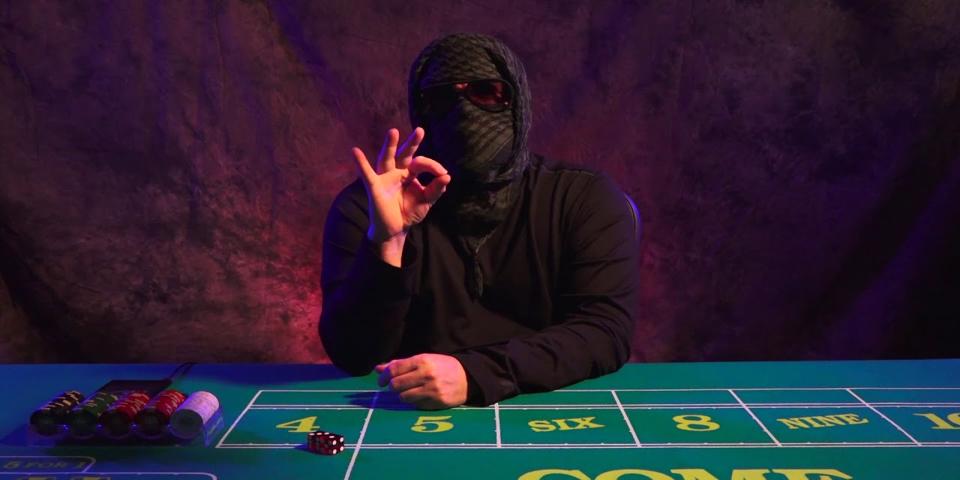
The main way to cheat at physical craps is to use loaded dice. Casinos could rig a craps table with loaded dice.
Since online and video craps determine the outcomes of their shoots with random-number-generating software, it would also be easy for them to skew the outcome in their favor.
However, casinos have no reason to rig either physical or digital craps games. Their profit is built into the house edge, not into the result of any one shoot.
Moreover, regulated casinos would lose their licenses if inspectors discovered a rigged craps game on the casino floor or an online casino app.
Summary
With colonial and potentially medieval roots, craps is one of the most low-tech and purest casino games of chance. You can’t fake or skew the odds on the outcome of a craps shoot—it’s literally a “roll of the dice.” In fact, “crapshoot” has entered the English lexicon as a synonym for an unpredictable outcome.
However, with many bets, side bets, and combinations of odds to choose from, meticulous and mathematically-inclined players have devised multi-step, stacked-bet strategies that can skew in their favor the odds of coming out ahead.
Alternatively, players looking for the thrill of a big win can plunk money they won’t miss on an unlikely outcome and join in the rowdy good fun. Either way, it’s more lively than a sedate blackjack or poker table.

